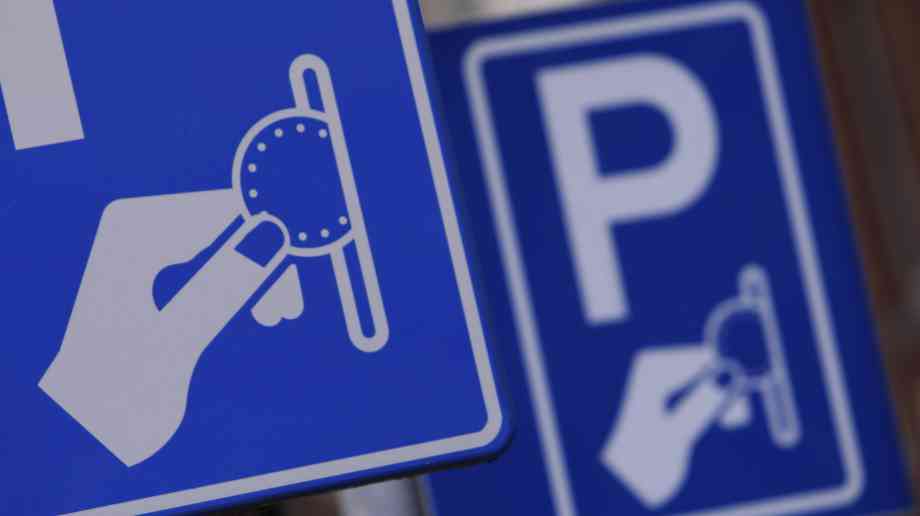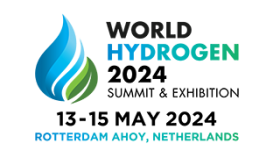Sue Robb of 4Children talks to Julie Laughton and Alison Britton from the Department for Education about the role of childminders in delivering the 30 hours free entitlement.

Changing the perception of parking
Glenn Dives, public affairs and research coordinator at the British Parking Association, looks at the local examples of where parking initiatives are delivering a service that is exceeding customer needs
The entire economy is facing a whole range of new challenges presented by technological innovation and consumer demand and the parking sector is no exception to this. Indeed there is a real desire across the industry to deliver a more positive and consistent parking experience for customers. To do this the British Parking Association (BPA) and its members are exploring new approaches and technologies to deliver a more integrated and effective service to the public.
The BPA is increasingly looking at the bigger picture to improve government, media and public perceptions of parking and support the sector to raise standards. It has made this a priority in its Blueprint for Parking which was published in July. The Blueprint outlines the BPA’s main objectives for the next five years, and is centred upon improving collaboration and consistency throughout the parking community, and encouraging professionalism and continuous development to raise standards.
The BPA has implemented this by connecting the sector together, as evidenced by both its recent Annual Conference and Parking Scotland events where the subject of collaboration and changing perceptions took centre stage. At Parking Scotland, a third of the day was allocated to a spirited debate around what private and public sectors can do to improve existing standards and create new ones. At the Annual Conference in London, almost the entire agenda from the opening introduction by Peter Lowe, president of the BPA, was centred upon collaborative thinking and how the industry can work together to change the perception of parking and deliver better outcomes for the customer.
While the BPA continues to connect its members together and encourage the wider sector, it is not alone in driving this agenda, and its membership are increasingly leading in this area. Indeed, the unofficial motto of the parking sector at the moment, to borrow the words of Cicero, would seem to be ‘I am not ashamed to confess that I am ignorant of what I do not know’. This admission has led to more collaborative approaches, exchange of knowledge, best practice and improvements to the customer experience and perception of parking.
The Positive Parking Agenda
One form this is taking is the development of the Positive Parking Agenda (PPA). The PPA has been developed by a group of local authority parking managers, fully supported by the BPA. The PPA aims to improve public understanding and the image of parking management by helping local authorities to work together in setting and raising standards, improving communications, encouraging innovation and promoting transparency in the delivery of parking management.
To address this, the group is spearheading a positive way forward, which aims to achieve better consistency across the public sector, to provide a standard set of principles and tools for local authority parking managers everywhere to adopt. The PPA also works to collate thoughts and ideas to enable a constructive response to commonly held inaccuracies and myths. One of their key messages is the importance of parking management in ensuring town centres remain free flowing, dispelling the perception that it is solely about enforcement, and of raising revenue for local authorities.
This is an area where the perception of parking does not match the reality and one that the PPA wants to address. Every year the media publishes an article about the alleged ‘profit’ that councils generate, even though the Road Traffic Regulation Act 1984 includes provisions to control the use of parking surplus generated. The essence of the legislation says income from all penalty charges, whether issued for on-street or off-street contraventions, plus any income from on-street parking fees and charges is subject to s55 usage, which means it must be reinvested in services. Income from off-street parking fees and charges is for general use by the local authority, but none of this is reported.
In fact, only 20 per cent of councils in the country make an operating surplus; the rest are running at a loss. Council’s absorb these costs because they have decided they need to manage the traffic in their area to ensure that their streets are as free as possible from congestion and that their town centres are accessible. The PPA is however, just the tip of the iceberg, as many local authorities are deeply involved in practical improvements to performance and delivering better standards for customers.
A good example of this work to improve customer experience is the City of Bradford Council. The council issues more than 100,000 PCN’s for parking, environmental and bus-lane contraventions. To ensure a smooth operation, the council has integrated the latest technology platforms into its public communications. This has involved automating its correspondence and providing an online self-service system to customers, simplifying and standardising their response to customer inquiries.
The council utilises two separate systems to perform these tasks. The first is an automated correspondence system, which generates an automatic letter in clear, jargon free English, which is fully consistent with council parking policies and this has led to a drop-in repeat correspondence from motorists. The other system operates 24/7 as a question and answer service on the council’s website. Because it is always available it can deal with customers outside normal working hours when the majority of customer have the time to deal with a PCN. These systems combined have dramatically improved customer service satisfaction scores and reduced time staff spend answering phones by about 40 per cent. Michaela Hall, the assistant parking coordinator for the council, estimates that it is saving around 300 hours a month in staff time.
Cambridge City Council
Improving customers’ experience can take many forms beyond providing improved customer service. The proper planning and communication around renovation work can help maintain customer usage and avoid unnecessary complaints. The recent work of Cambridge City Council and Stripe Consulting demonstrates this extremely well.
The council and Stripe Consulting worked together to develop a refurbishment plan and a communication strategy to renovate three of the council’s car parks. The work progressed in stages, with both organisations and the construction firm maintaining regular contact at multiple levels, to minimise issues as the work progressed. The council meanwhile proactively communicated with the public.
Indeed, they were so successful that they only received one complaint during the work and that was because of the smell of some of the materials, rather than the work itself. In terms of general customer experience, due to the planning undertaken, disruption from the work was minimal with the town centre remaining free flowing and 80 per cent of available car park capacity being maintained. As a part of the work, the council decided to design a cohesive brand for the city’s multi-storey car parks utilising a common colour scheme and signage. This common branding is intended to give customers confidence that they are in a quality facility and provoke a sense of ownership. The aesthetic is clean, simple and looks high-value to meet the council’s specifications, and forms part of their 20-year refurbishment plan. Following the completion of the project the two project leads, Russell Simmons of Stripe and Sean Cleary from Cambridge, have continued utilising their communication skills by proselytising the success of their project to the rest of the parking community.
These are just some of the collaborative work patterns which the parking industry is developing to maintain and improve the experience of the consumer and the perception of parking, but it is only the beginning and there is still much to do. With the ongoing focus of the sector and the BPA on collaboration and innovation we will see continued improvements for the customer and real change in the way parking is perceived and managed.
Company Focus
Founded in 1792, Don & Low began as a small woven textiles manufacturer in Scotland, gradually expanding its operations and diversifying its production capabilities over the years. Through strategic investments in technology and a relentless pursuit of quality, Don & Low has evolved into a leading vertically integrated manufacturer, specialising in the production of construction membranes, geotextiles, and industrial textiles & yarns.
Event Diary
UKREiiF has quickly become a must-attend in the industry calendar for Government departments and local authorities.
The multi-award-winning UK Construction Week (UKCW), is the UK’s biggest trade event for the built environment that connects the whole supply chain to be the catalyst for growth and positive change in the industry.
The organisers of the world’s largest dedicated hydrogen event, World Hydrogen 2024 Summit & Exhibition have announced it’s return to Rotterdam in May 2024, with an expansion of a whole extra summit day. Sustainable Energy Council (SEC) are partnering with the Government of the Netherlands, the Province of Zuid-Holland, the City of Rotterdam, and the Port of Rotterdam to host an extended, larger scale Summit in 2024, to expand the event to meet the surging demand.
Supplier Profiles
Neat Seats
Neat Bins, Part of Neat Seats Ltd is a company that specialises in cleaning all your wheeled bins
Would you like to become a Gas Safe Engineer, Electrician or a Renewable engineer.
Let us show you the way…….
Latest Features
Professor Harith Alani, director of the Knowledge Management Institute at the Open University explains how AI can be used for good and bad.
Alex Lawrence, head of health & social care, techUK sets out techUK’s Five Point Plan for CareTech.












